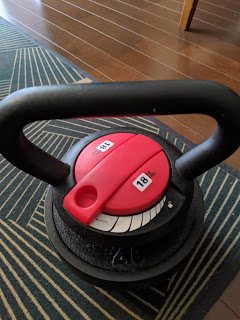翻訳業もサービス業なのでクライアントがあっての翻訳会社です。そもそも依頼側に寄り添わない翻訳に対して、依頼主が対価を支払うこと自体が不思議でした。しかし「クライアントに寄り添わない翻訳」は、間違いなく存在します。ビジネスとしても成り立っています。
ざっくり言って、クライアントに寄り添った翻訳とは、クライアントが支給するマニュアルに忠実に翻訳したり、クライアントの好みを優先したりする翻訳のことを意味します。
クライアントに寄り添わない翻訳とは、クライアントの好みは優先せず、自分の文体で翻訳を進めるような翻訳を意味します。
前者は、クライアント毎に文体を調整する必要がある。その分、時間がかかる。後者は、その必要がない。時間は節約できるだろう。ひょっとしたら後者の方が回転率は高いかもしれない。しかし自分の文体を気に入ってくれるクライアントを見つけることは並大抵のことではないと思います。見つかるまでが大変だと思う。
僕は、発注する側なので、後者のように指示に従ってくれない場合、イラっとします。基本、そういう翻訳者さんは起用していません。そういう翻訳者さんは、常に新しいクライアントを探し続けているような印象があります。履歴書を拝見するとかなりベテランなので今更クライアントを開拓する必要がなさそうに思うと、後者の翻訳者さんだったことが判明することがあります。ひょっとすると自分の文体を気に入ってくれるクライアントを探している最中だったのかもしれません。
*特許翻訳の場合、権利主張が前提です。指示通りに翻訳しないと出願人さんの権利主張支障が出ます。基本、大半の特許翻訳者さんは、指示通りに翻訳されます。逆に指示がない場合、指示書はありませんか?と尋ねてこられます。
Title: Translator-centric translation
I learned that there are translator-centric translations. I wrote this article because it was a very interesting discovery. When I learned about the existence of such translators, I felt that translator-centered translation was impossible.
The translation industry is a service industry. The first is the client. The second is a translation company. In the first place, it was strange that the client pays the translation fee for translator-centered translation. But "translator-centric translation" definitely exists. And translator-centered translation is also a business.
Roughly speaking, client-centric translations are faithful to the client-supplied manuals. Also, client preferences take precedence. Client-centric translation means such a translation.
In translator-centric translation, client preferences are not prioritized. The translation will proceed in the style of the translator's preference.
In the former case, the translator needs to adjust the writing style for each client. Therefore, translation takes time. In the latter case, the writing style is not adjusted for each client. The latter saves time. Perhaps the latter has a higher turnover rate. However, finding a client that accepts translator-centric translations can be difficult.
I am the ordering party. Therefore, I feel uncomfortable with translators who do not follow the instructions. Basically, I don't assign such translators. Such translators will always have to keep looking for new clients. Only such translators are quite experienced. So it makes me think that there is no need to develop new clients now. Later, it may turn out that he was the translator of the latter.
In the case of patent translation, the purpose is to claim patent rights. If you do not translate as instructed, it will hinder the applicant's claim. Basically, most patent translators translate as instructed. On the contrary, if there is no instruction, the translator will ask if there is any instruction.
* The above was translated using machine translation. It is not a complete translation. If you are unsure of the content, please refer to the original Japanese.













